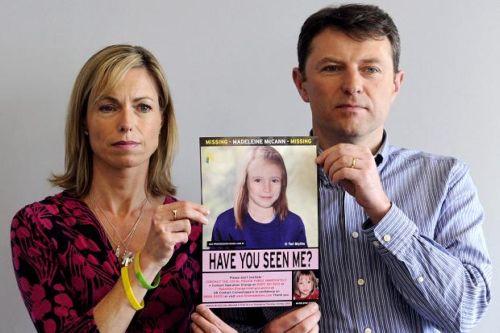|
Britain has not yet requested Portuguese
help in its new inquiry into the
disappearance of Madeleine McCann.
Scotland Yard said a week ago that it
was beginning a ground-breaking
investigation and would have a team of
detectives based on the Algarve, from
where Madeleine went missing while on
holiday six years ago.
Senior Metropolitan Police officers said
they wanted to trace 38 potential
suspects across five countries, had new
lines of inquiry to pursue and new
witness evidence to develop. Classifying
the case as a criminal investigation,
the Met said, would give its detectives
“teeth” to interview witnesses and
suspects, search properties and other
locations and, if necessary, make
arrests.
But seven days later the international
Letter of Request necessary to start the
Europe-wide inquiry has not left London
and the Portuguese authorities are said
to be surprised by the lack of progress.
The Crown Prosecution Service, which
must deliver the letter to the
Portuguese judicial authorities, said
its officials were still drawing up the
complex legal document.
Prosecutors are understood to have
received very little notice of Scotland
Yard’s decision last week to publicise
its shift from a review of the case to a
full investigation. International
criminal investigations in Europe are
governed by two treaties: the 1959
European Convention on Mutual Assistance
in Criminal Matters, and the Convention
on Mutual Assistance in Criminal Matters
between EU States of 2000.
The conventions set out the accepted
procedures for exchange of legal papers,
holding hearings by videolink, the
operation of joint investigation teams
and the control of undercover officers,
phone taps and interception of e-mail
and other communications.
Madeleine was almost four when she
disappeared from her family’s holiday
apartment in Praia de Luz in May 2007.
She had been asleep in the apartment
with her younger twin siblings while her
parents, Kate and Gerry McCann, dined
with friends nearby.
The original Portuguese police inquiry
was inconclusive and was shelved in
2008. It cannot be re-opened unless
there is significant new evidence that
reaches a threshold set down by
Portuguese law.
David Cameron ordered the Met to review
the case in 2011 and a team was set up
to examine documents gathered by
Portuguese police, British agencies and
private detectives hired by the McCann
family. The discovery of new leads
during that review convinced the Met
there was a chance of solving the case.
Andy Redwood, the Detective Chief
Inspector who is leading the inquiry,
Operation Grange, said last week: “It is
a positive step in our hunt for
Madeleine that our understanding of the
evidence has enabled us to shift from
review to investigation.”
Despite 16 visits by British detectives
to Portugal in the past two years,
Lisbon insisted that “the British
authorities cannot act on their own in
Portugal”.
The Attorney-General’s office added that
British police “will not be able to
direct any interrogation or effect any
investigation, on their own account, in
Portugal”.
A spokesman for the CPS said: “Any legal
communication between different
jurisdictions requires extremely careful
correspondence, including appropriate
translations. We are in liaison with the
Portuguese authorities, and will send
the formal Letter of Request as soon as
possible.”
|



